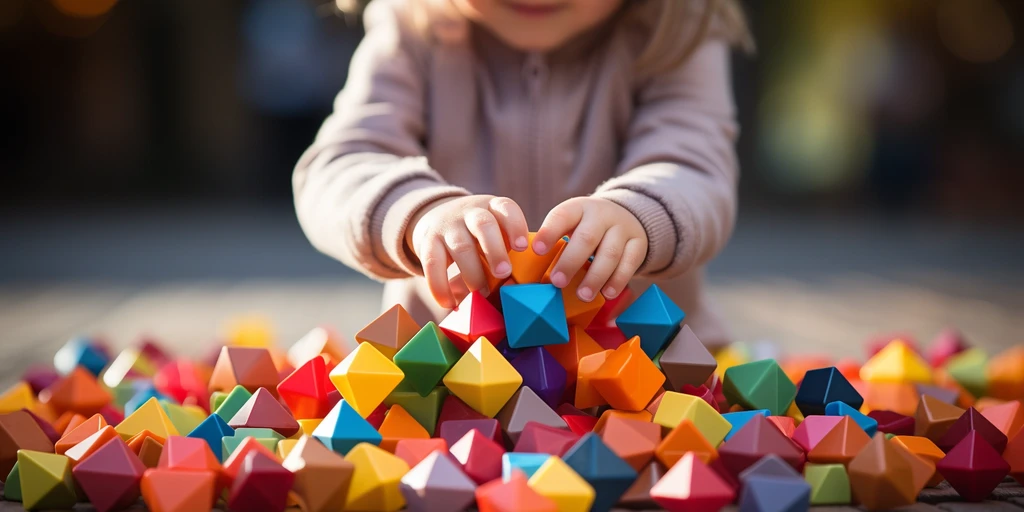Understanding your child’s developmental milestones is crucial for ensuring their holistic growth and well-being. From physical prowess to cognitive development and emotional resilience, each stage of a child’s journey presents unique opportunities for parents to support and nurture their progress.
By offering practical tips on interactive play, establishing healthy routines, and creating a nurturing environment, this guide aims to empower parents to foster their child’s development effectively. Additionally, we’ll provide resources for tracking milestones and advice on when to consult a specialist, such as a children’s doctor, baby doctor, or even an allergist near you, to address any concerns about developmental delays.
Dive in to discover how you can confidently support your child’s journey through these pivotal years.
Physical Milestones
Physical milestones are key indicators of a child’s growth and development. During early childhood, children achieve many physical indicators that pave the way for future abilities and confidence.
This section will discuss fundamental physical milestones, from the first steps to fine motor skill development, and provide insights on establishing healthy routines to support your child’s physical prowess. Understanding and supporting these milestones will enable you to play an active role in encouraging your child’s physical growth and overall well-being.
First Steps and Mobility
Your child’s first steps mark a significant milestone in their physical development. Typically, this occurs between 9 to 15 months. Encouraging mobility during this period is vital. You can support this by creating a safe space for exploration. Remove sharp objects and secure furniture to prevent accidents. Interactive play, such as guiding your child while they hold onto your hands, can also boost their confidence and balance.
Providing push toys can help them practice walking. Additionally, ensure they have ample floor time to crawl and strengthen their muscles. If your child isn’t showing signs of walking by 18 months, consider consulting a children’s doctor or baby doctor to rule out any developmental delays. Remember, every child develops at their own pace, but staying proactive ensures they receive the support they need.
Fine Motor Skills Development
Fine motor skills involve the coordination of small muscles in the hands and fingers, which are essential for tasks like buttoning a shirt or holding a pencil. Development of these skills typically begins in infancy and continues through early childhood. To support your child, offer activities that encourage hand-eye coordination. Simple games like stacking blocks, drawing, or playing with clay can significantly enhance dexterity. It’s also beneficial to introduce utensils during meal times to practice grip and control.
Monitor your child’s progress and celebrate small achievements to boost their confidence. If you observe difficulties in performing age-appropriate tasks, consulting a children’s doctor can provide guidance. In some cases, an occupational therapist may offer targeted exercises. Early intervention ensures your child develops the necessary skills for daily activities and academic success.
Encouraging Healthy Routines
Establishing healthy routines early in your child’s life lays the groundwork for lifelong well-being. Start by setting consistent sleep schedules. Adequate rest is crucial for physical development and cognitive functioning. Encourage regular physical activity, such as outdoor playtime, to foster motor skills and maintain a healthy weight. Nutrition plays a pivotal role, so introduce a balanced diet rich in fruits, vegetables, and whole grains.
Involve your child in meal preparation to make healthy eating enjoyable and educational. Regular check-ups with a children’s doctor ensure your child’s growth is on track and address any concerns promptly. Additionally, maintaining a routine helps children feel secure and reduces anxiety. If allergies are a concern, consulting an allergist can help identify triggers and manage symptoms effectively. By incorporating these practices into daily life, you support your child’s physical milestones and promote overall health.
Cognitive Milestones
Cognitive milestones are a crucial aspect of early childhood development because they lay the foundation for learning, problem-solving, and critical thinking skills. As children grow, they begin to engage more with their environment, developing essential cognitive abilities that influence their future academic and social success.
This section will guide you through the key cognitive stages, offering practical advice and activities to nurture your child’s intellectual growth and curiosity. By understanding and supporting these milestones, you can help your child become a confident thinker and an eager learner.
Language and Communication Growth
Language development is a key aspect of cognitive milestones in early childhood. Between the ages of 1 and 3, children typically progress from simple words to short sentences. To support this growth, engage in frequent conversations with your child, even if they can only respond with gestures or sounds. Reading together daily fosters vocabulary expansion and comprehension.
Encourage your child to express their needs and feelings, which enhances both verbal and non-verbal communication skills. Singing songs and reciting rhymes can also improve language acquisition. If you notice delays, such as difficulty understanding simple instructions or limited vocabulary by age 2, a consultation with a childrens doctor can assess whether further evaluation or speech therapy is needed. Early intervention ensures that your child develops strong communication skills, which are crucial for social interaction and academic success.
Problem-Solving Abilities
Problem-solving skills are crucial for cognitive development, enabling children to navigate challenges and make decisions. Early on, children use trial and error to solve problems, such as figuring out how to fit shapes into a sorter. Encourage these abilities by providing age-appropriate puzzles and building blocks, which stimulate critical thinking and spatial awareness. Interactive games that require decision-making can further enhance these skills.
Additionally, allowing your child to experience minor frustrations and guiding them through solutions fosters resilience and perseverance. Ask open-ended questions to prompt creative thinking and help them articulate their thought processes. If your child struggles with problem-solving tasks typical for their age, consider consulting a children’s doctor for guidance on developmental assessments. Supporting your child in developing these abilities prepares them for academic challenges and everyday life situations, contributing to their overall cognitive growth.
Interactive Play for Cognitive Skills
Interactive play is a powerful tool for enhancing cognitive skills in children. Activities such as board games, memory cards, and building sets challenge their thinking and reasoning abilities. These games often require children to follow rules, strategize, and recall information, all of which are essential for cognitive development. Role-playing games, where children take on different characters, can also boost creativity and problem-solving skills.
Moreover, engaging in play with peers teaches cooperation, turn-taking, and negotiation, which are vital social cognitive skills. Encouraging your child to participate in group activities or playdates can further enhance these experiences. If you notice any concerns regarding your child’s cognitive development, consult a baby doctor to discuss potential interventions. Interactive play not only supports cognitive milestones but also makes learning enjoyable, setting a foundation for lifelong curiosity and intellectual growth.
Emotional Milestones
As your child grows, emotional milestones play a pivotal role in their overall development, impacting how they interact with the world and manage their feelings. This section dives into key emotional milestones, offering guidance on nurturing emotional intelligence, boosting self-esteem, and fostering essential social skills. By understanding and supporting these aspects, you can help your child navigate their emotions confidently and build strong, healthy relationships for the future.
Understanding Emotions
Understanding emotions is a fundamental component of a child’s emotional development. From a young age, children start recognizing and expressing basic emotions such as happiness, sadness, and anger. To support this growth, it’s important to engage in conversations about feelings. Encourage your child to articulate their emotions by labeling them during various situations, such as saying, “You seem upset because we have to leave the park.” Books and stories that explore different emotions can also be effective tools for teaching emotional literacy.
Additionally, model healthy emotional expression by discussing your own feelings in age-appropriate ways. If your child struggles to understand or express emotions, it might be beneficial to consult a children’s doctor or child psychologist. Early guidance can help address potential issues, ensuring your child develops the emotional intelligence necessary for successful social interactions and personal well-being.
Building Self-Esteem
Building self-esteem in children is essential for their emotional resilience and overall mental health. Positive self-esteem helps children approach challenges with confidence and fosters a sense of self-worth. To nurture self-esteem, provide your child with opportunities to succeed in various tasks, no matter how small. Praise their efforts and accomplishments, focusing on the process rather than just the outcome. Encourage independence by allowing them to make choices, which reinforces their decision-making abilities and self-reliance.
Additionally, establish a supportive environment where your child feels valued and heard. Engaging in activities that align with their interests can boost their confidence and help them develop a sense of identity. If you notice persistent issues with self-esteem, such as frequent self-criticism, consulting a children’s doctor or child psychologist may be beneficial. Early intervention can address underlying concerns and promote a positive self-image as they grow.
Fostering Social Skills
Fostering social skills in children is crucial for their ability to form friendships and interact positively with others. These skills are often developed through play and social interactions. Encourage your child to participate in group activities where they can practice sharing, cooperating, and communicating. Role-playing games, where they take turns being different characters, can also enhance empathy and understanding.
Teach them the importance of listening and using polite language. Model appropriate social behavior in your interactions with others, as children often learn by observing adults. If you notice difficulties in social interactions, such as trouble making friends or understanding social cues, consulting a children’s doctor or child psychologist can provide guidance. Early support can assist in developing the skills necessary for successful interpersonal relationships, contributing to their emotional and social well-being.
Final Thoughts
Supporting your child’s journey through the various stages of development is both a rewarding and challenging task. By understanding and actively engaging with their physical, cognitive, and emotional milestones, you set the stage for your child to thrive. Remember, every child develops at their own pace, and your role as a supportive guide will make a lasting impact on their growth and well-being.
Celebrate the small victories along the way, and don’t hesitate to seek professional advice if you have concerns about your child’s development. Resources such as children’s doctors and specialists can offer invaluable insights and interventions to ensure your child achieves their full potential.
Ultimately, the key to fostering your child’s development lies in creating a loving and nurturing environment where they feel safe to explore, learn, and express themselves. By equipping yourself with the knowledge and tools outlined in this guide, you are well-prepared to support your child through each exciting stage of their journey.



